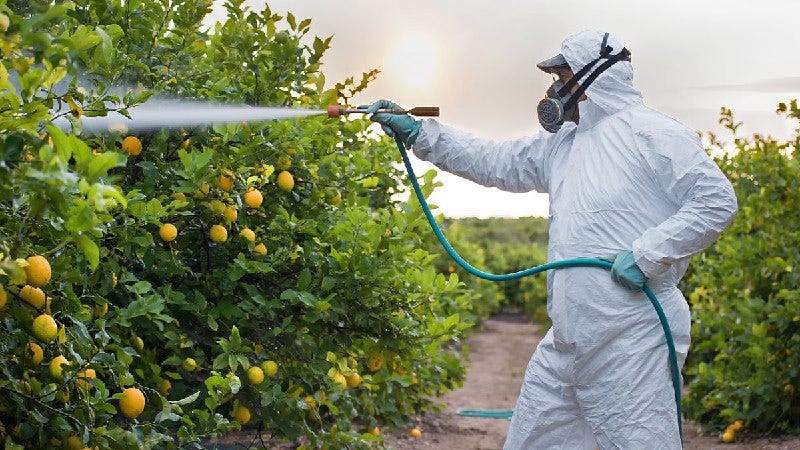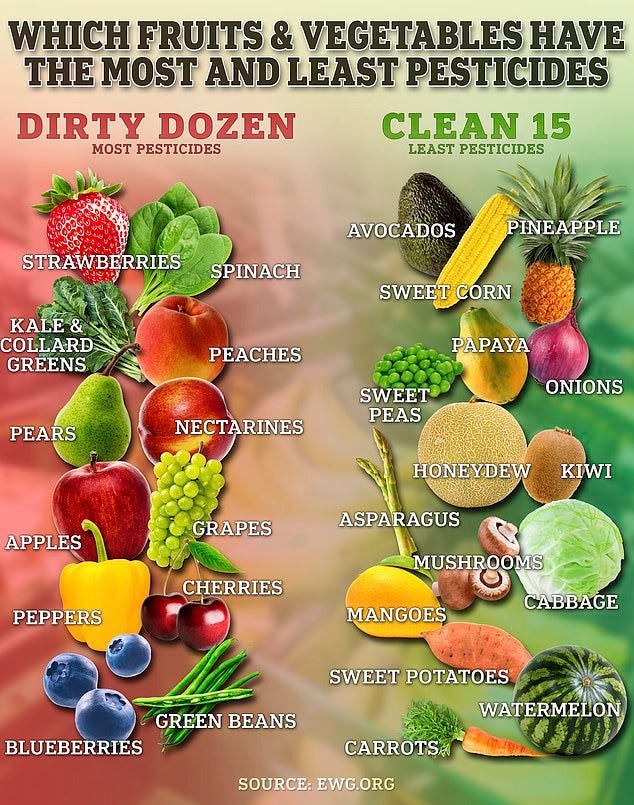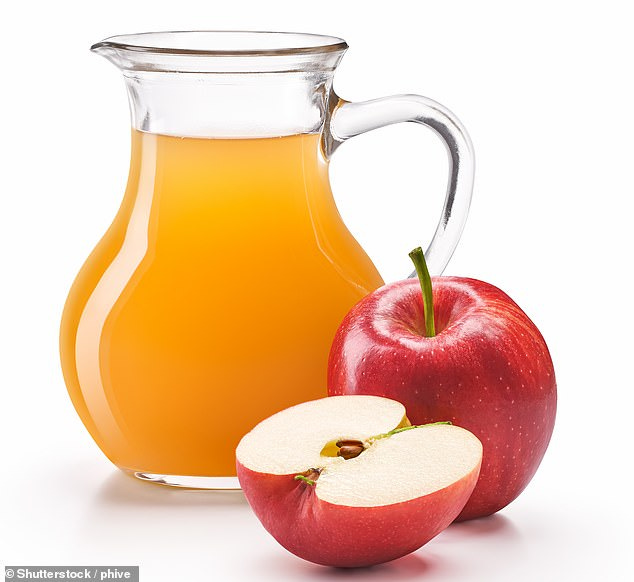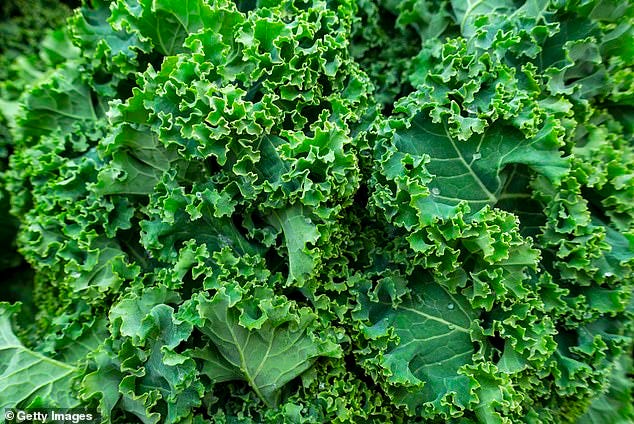Pesticides found in up to HALF of childrens' apple juice bottles could lead to PARKINSONS, new study suggests
Exposure to pesticides when combined with gene mutations increases risk
By Cassidy Morrison
Exposure to a trio of pesticides found in up to half of all bottles of childrens' apple juice could increase the risk of developing Parkinson's disease in those with a genetic vulnerability, a new study suggests.
Experts from UCLA found that Americans who carry 26 genetic mutations could be especially vulnerable to brain damage related to certain chemicals in produce.
Parkinson’s disease is a degenerative neurological disorder that affects areas of the brain that govern movement, speech, and memory. It affects nearly one million Americans.
Pesticides are ubiquitous in American agriculture across a range of crops, and scientists zoomed in on three chemical classes: organophosphorus, organoarsenic, and n-methylcarbamate.
All are used to kill bugs on fresh fruit and vegetables, with some studies suggesting traces are present in up to 50 percent of fruit juices on grogery store shelves.
Organophosphate pesticides are among the most widely used insecticides in agriculture, used to repel insects on a variety of crops including fruits and vegetables that turn into juices on grocery store shelves.
About 40 percent of all pesticides produced and used commercially are organophosphates.
The federal government examined over 80,000 food samples for pesticide residues in the years from 1991 and 1996.
During that investigation, they uncovered 13 organophosphate pesticides in or on food, according to FDA and USDA insepectors.
Organoarsenic has largely been phased out of the agricultural field, although many countries, including the United States and the European Union, have banned or restricted the use of organoarsenic pesticides.
N-methylcarbamate is widely used on a long roster of crops including fruits and vegetables, cotton, tobacco, nuts, wheat, and corn.
A 2004 study found the compound was widely found in fruit juices meant for children, because the insecticide is used on those crops. Carbaryl was the most common N-methyl carbamate detected in the juice samples, appearing in 58.6% of the tested samples, mostly apple juice.
UCLA Health investigators looked at a group of 757 Parkinson's disease (PD) patients from the Parkinson's, Environment, and Genes (PEG) study to explore the connection between genes, pesticides, and PD risk.
Most of the participants, who came from rural parts of Central California, were white males, and had an average age of 68.
While the scientists could not say to what extent pesticides increased PD risk, the research concludes that, under the right stress, such as exposure to certain pesticides, genetic mutations can, over time, lead to the development of Parkinson's.
Organophosphorus, organoarsenic, and n-methylcarbamate are all neurotoxins that damage pathways in the brain driven by the neurotransmitter dopamine, involved in movement and mood.
Levels of this chemical plummet in cases of Parkinson’s, which leads to trademark tremors and cognitive decline.
The chemicals also disrupt the process of autophagy, which clears damaged proteins from cells. Disrupting this process may lead to the accumulation of toxic proteins linked to PD.
Researchers selected 85 genes known to be linked to PD from existing literature and genes involved in clearing out waste from brain cells.
The riskiest mutations were in genes EP300, FBXO7, and HTT, for subjects exposed to pesticides.
The presence of these mutations could be interact with pesticide exposure to increase the risk of PD.
The researchers detailed their findings in a new report published in the journal npj Parkinson's Disease.
California, where the study subjects were from, is the largest agricultural producer and exporter in the country and there are more than 14,000 pesticide products approved for use there.
UCLA researchers previously identified 10 pesticides that specifically attack dopaminergic neurons, which determine motor skills and movement, the hallmark signs of Parkinson’s.
Two pesticides that have been studied and found to influence the risk of Parkinson’s include rotenone and paraquat.
Dr Freya Kamel, an NIH researcher, said: ‘Rotenone directly inhibits the function of the mitochondria, the structure responsible for making energy in the cell.
'People who used these pesticides or others with a similar mechanism of action were more likely to develop Parkinson's disease.’
Please Donate to the Art of Liberty Foundation’s Fundraising Campaign
Hello friends of the Art of Liberty Foundation, Five Meme Friday and the Daily News,
We are in the midst of a fundraising campaign to publish our next major book: Voluntaryism – How the Only “ISM” Fair for Everyone Leads to Harmony Prosperity and Good Karma for All!
We have raised $38,107 (76%) of our $50,000 goal. We need to raise the remaining $11,893 as soon as possible!
We have some outstanding premiums to say thank you!
You can donate via Credit Card @ ArtOfLiberty.org/Sponsor, and we have options for offline mail-in donations and cryptocurrency donations below.
You can watch a short video from Etienne explaining the goal and needs HERE. You can download our Annual Report HERE.
Peter S. who became a $250 Founding Member on Substack wrote me a wonderful note that I would like to quote from:
"You are doing awesome work, and I am happy to support your efforts. You are helping to launch a totally new way of thinking about governments, for which I am most thankful. I have already bought several copies of your book, with the intention of giving them away to others, something which I have almost never done in my life, since your perspectives and take on history needs desperately to be shared far and wide. Even though as a philosophy major in college--before turning organic farmer—I valued books and ideas very highly, yours is a real paradigm changer!"









